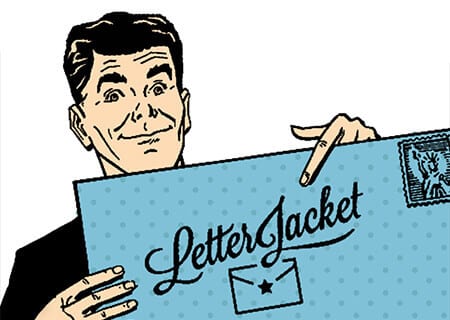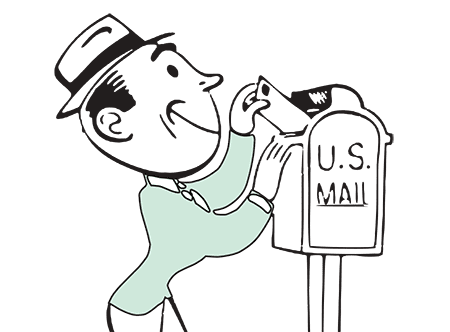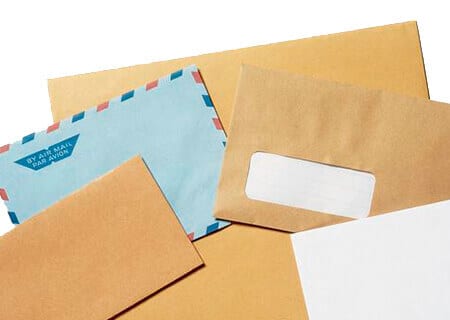“But wait — I’m not in the hospitality industry.” If you just thought that, this blog post is for you. All good industries are hospitality industries. Hospitality doesn’t need aprons and room service. It is an attitude, and it’s crucial for long-term business relationships. Because whether you’re a caterer, non-profit organization, or CPA, the way you run your organization helps people feel welcome and human — or not. And we think efficiency is key. Here are 5 ways that efficiency can = hospitality for you.
#1 – Finding the goal of efficiency
Efficiency means saving time, saving resources, and getting more done quicker. An organization operating efficiently is like a ballerina dancing. If you’ve ever tried ballet you know: a lot of work goes into each small movement, and a great deal of power and energy is channeled with grace. But sometimes efficiency can get a bad rap if the effective running of an organization blocks out any and all organic, normal human messiness. In other words, efficiency can become an end in itself, pushing out need, complaints, ability to change, breathing room and flexibility. You can feel the difference when a company is first about the product, the bottom line, and beating the competition (though we hope you do that, too!), and when it’s first about the people and healthy, long-term business relationships. Real efficiency serves people. A ballerina doesn’t dance 24/7!
#2 – Making time for relationships
Anyone with children knows this magical principle: as soon as they are born, you realize what little time you have, and are also able to get a whole lot more done. As you gain more efficient operations — whether that’s in information sharing, interoffice communication, marketing, resource management, etc. — you will have more time on your hands for the most important work: people. Identify relationships you want to nurture. This can be on a personal or organizational level. Hospitality in business is simply finding ways to create an atmosphere of welcome for customers and co-workers, providing space for them to comfortably be people and not just goal-meeting machines. Combined with a dedication to efficiency, a human-friendly atmosphere also, interestingly, tends to produce the best product. The extra breathing space can also be used to think ahead about how you want to continue improving an “I have time for you” precedent in your customer service and HR approaches.
#3 – Creatively allocating resources
Sometimes there is a fear lurking behind efficiency, and that is the fear of what you will do with those extra resources, be that your own time, staff time, money, office furniture, whatever. Staying busy in the same pattern, even if it’s not entirely efficient, is at least safe because you don’t have time to try anything new. We’ve all done it! What if you had extra room to dream, imagine, grow, try new things? Research and development is a great place to invest extra resources, for example, into creatively directing a product’s progress through the question, “How can we create the best experience possible for our clients as people?” Another example, on a smaller scale, is to invest extra cash in a new look for your office and waiting area. Getting rid of ugly colors, uncomfortable chairs, scratchy tissues, bad coffee, or setting up potted trees, a fish tank, a more attractive restroom — these can all maximize the sense that your business is where people want to be. If you want to embrace some extra opportunities, then hold on to efficiency like your long-lost twin.
#4 – Making customers feel safe
If efficiency is truly, at heart, about making more space to connect with people, then as you increase efficiency, you are setting up your clients for satisfaction on multiple levels. To know that a business will get a job done, with a smart and minimized effort, on time, and then have room to go the extra mile, makes customers feel safe in your hands. For example, a clear, efficient line of communication and streamlined way of sharing documents can move a collaborative conversation along without confusion. An efficient marketing campaign builds confidence in clients and prospects that they’ll never receive more mail or email from you than they desire or need. They trust you and can look forward to working with you as a stress-reliever rather than a stressor. And isn’t stress relief at the heart of hospitality, too?
#5 – Making staff feel safe
Speaking of stress relief, if you want to know whether your efficiency efforts are cutting muster, check in with staff. A true atmosphere of hospitality to reach outward begins with employee happiness inward. Are staff on board with new methods to increase efficiency, or do they feel confused, pushed out of their territory, or like they’re making improvements only because they were told to? Do they see and love the vision behind the changes? Do they have enough say in the way office management, organization, and communications work? And how are the efficiency efforts actually working out on the ground? Is that software update that was supposed to help, for example, actually helping, or making people’s laptops freeze? Getting efficiency right means you can feel stress levels lowering on staff, and your teams feel they are able to do their jobs and openly communicate about how it’s all working. You know the saying, “If Mama’s not happy, ain’t no one happy.” If efficiency efforts are hospitable to your staff, then you can work out together all the ways that efficiency = hospitality for your business.
And if you want to explore how to streamline your direct mail efforts, get in touch with Letter Jacket. Start with an email, a phone call, or a live chat with one of our own resident experts. Customers love us. We’re ready for you!



